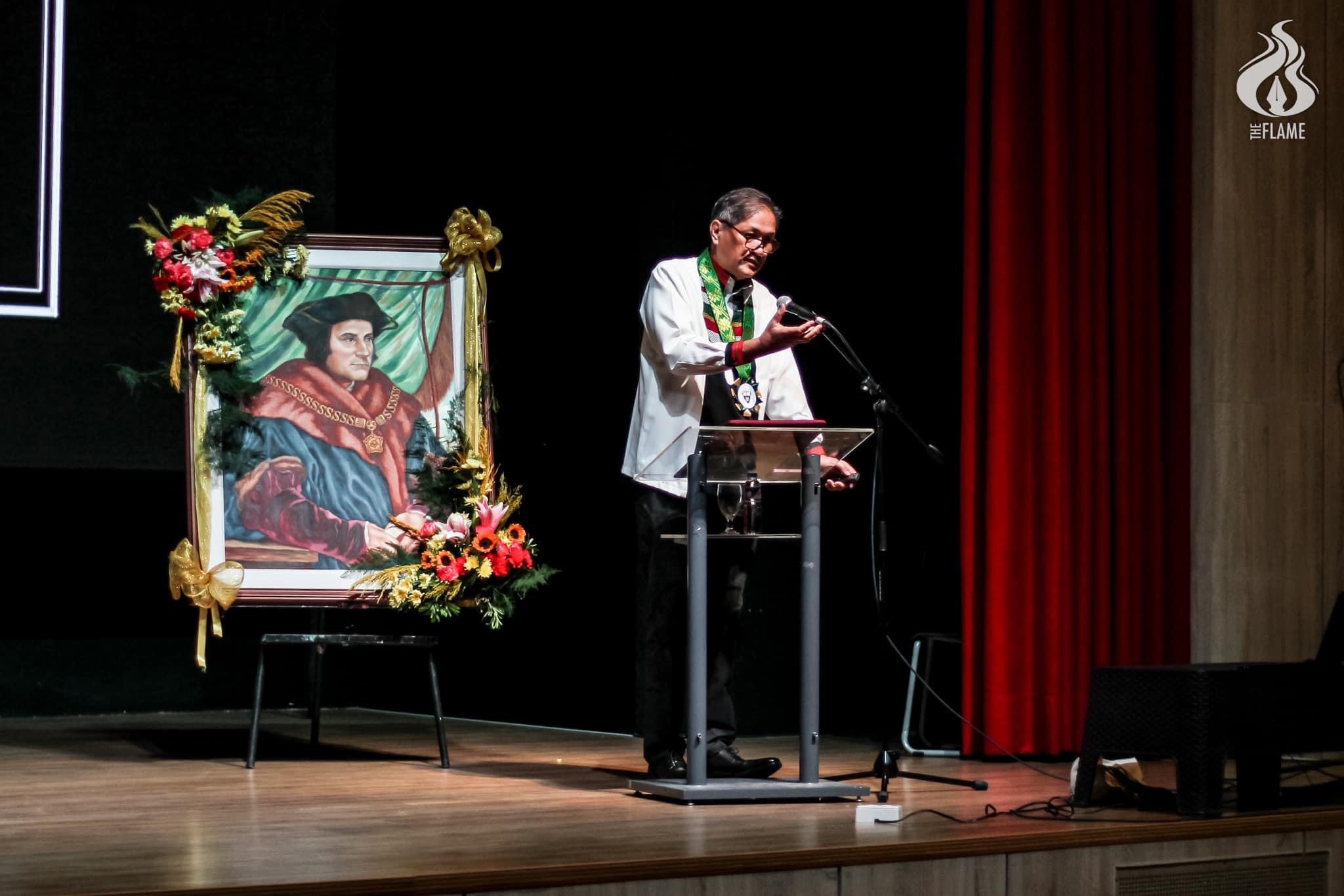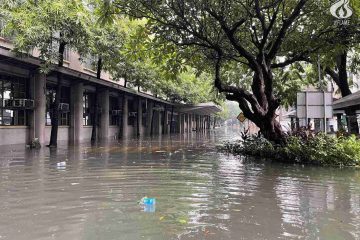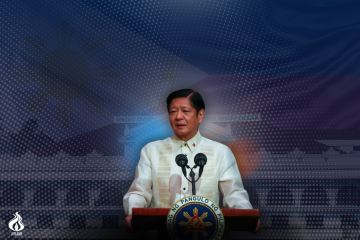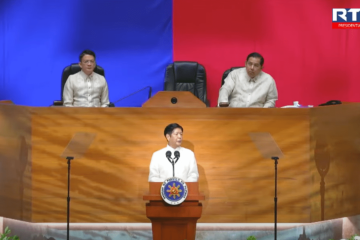
ST. THOMAS More’s concept of a “perfect society” should not be a vision for governance as it has been used by past Philippine presidents to justify human rights violations and other atrocities, a lawyer said.
Antonio Gabriel La Viña, a lecturer from the UST Faculty of Civil Law, said the pursuit of utopia or an ideal and imaginary society by previous state leaders had been at the expense of human and civil rights.
“Repressive governments that commit the most horrendous and barbaric acts of violence against a fellow human being’s invariably founded on a warped and perverse notion of a utopia that their leaders conjure and imagine and forcibly impose upon other people,” La Viña said during the 56th St. Thomas More Lecture on Monday, March 18.
La Viña referenced More’s 1516 book, Utopia, which depicts an imaginary and perfect world where people live under good governance and other ideal social institutions. While one may act towards utopia, La Viña said, such a concept could “never be fully achieved.”
He argued that the administrations of former presidents Ferdinand Marcos, Sr., Benigno Simeon Aquino III and Rodrigo Duterte had envisioned making the country a “utopian society.”
According to him, Marcos, Sr.’s “need for natural security” to attain the “new society,” an aspiration that was supposed to free Filipinos from poverty and corruption, led to the declaration of Martial Law.
La Viña also tackled Aquino’s campaign against corruption and claimed that some of the late leader’s measures were done for political reasons. He cited the impeachment of former chief justice Renato Corona and the prosecution of former president Gloria Macapagal-Arroyo, Aquino’s immediate predecessor.
Duterte’s aspiration for a drugless society, La Viña said, only achieved the opposite as it gave rise to the war on drugs, which killed thousands of alleged narcotics users and pushers.
“Utopian vision [of] a society without drugs, where does it lead? Now we are left with a society still with drugs but with lots of dead bodies,” he said.
While urging the public to be cautious about “utopian thinking,” La Viña said there are “important virtues” that could be drawn from More’s imaginary world.
“I think that’s the value of utopia, not that we can have a utopia but we can get from utopia, virtues that we can live, grow, develop and live in the world to make it a better place,” he said.
The lecture is an annual event in honor of the Faculty of Arts and Letters patron St. Thomas More, a prominent Renaissance humanist and lord chancellor who was martyred for rejecting Henry VIII’s claim that he was the head of the Church of England.
This year’s lecture carried the theme “Advancing Morality: The Pursuit of Good Governance Through Ethics” and was held at the auditorium of the Blessed Giorgio Frassati building. F – B.Y. Abrencillo and M.L. Weng with reports from Venerando Pagaduan VII and John Martin Revilla



